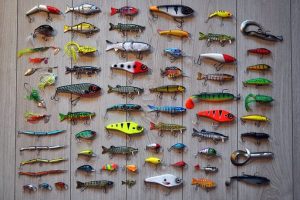Fishing is an activity that is practised by many people with a clear predominance of the male sex. This hobby, considered by the majority to be harmless and safe, could in truth be dangerous for certain parts of our bodies, in particular for eyes. In fact, data from the US eye injury registry state that the eye injuries associated with fishing account for 19.54% of all sports-related eye injuries in general and that sport-related open-bulb injuries occur in 44.06% of cases.
Eye injuries caused by fish hooks, although uncommon, can result in serious eye injuries. The severity of these injuries depends on the eye structures that the fish hook accidentally strikes. The hook, in fact, due to its thickness and shape, has a very high penetration capacity that can affect not only the cornea and sclera, but even the posterior chamber of the vitreous, although the most frequent injuries are those related to the anterior segment.
Eye injuries are also often associated with complications such as the appearance of cataracts following trauma, haemorrhage of both the choroid and the vitreous body, infections such as endophthalmitis, as well as retinal detachment, the latter condition resulting in loss of vision. The severity of eye trauma due to hooks also depends on the speed of the hook and the direction and orientation from which it is thrown.
There are no abundant data on this in the literature, as eye injuries from hooks are accidental and rare events. However, recently in a well-known and prestigious ophthalmology journal, the BMC Ophthalmologysome scientific evidence has been published about accidental eye injuries from fish hooks.
What the study data says
The study was conducted by a team of researchers from the Department of Ophthalmology at the University Medical Centre in Kiel (Germany) on 9 patients, including 4 children, all male and aged between 7 and 50 years. All patients had ocular injuries as a result of the fish hook being stuck in the eye and all of them required surgery. Of 9 patients, 4 had open bulb lesions.
The authors of the study conclude by stating that although there are no real recommendations or warnings to follow, it is important to consider certain complications associated with this activity. Therefore, the eyes should always be protected with the use of lenses, which will certainly reduce the number and severity of eye injuries from fish hooks that one may sustain.
Source
Purtskhvanidze et al. Open globe and penetrating eyelid injuries from fish hooks. BMC Ophthalmology. 1-5; (2019)
Dr. Carmelo Chines
Direttore responsabile

